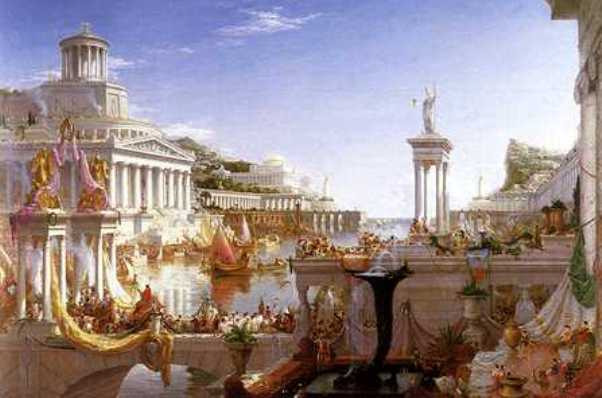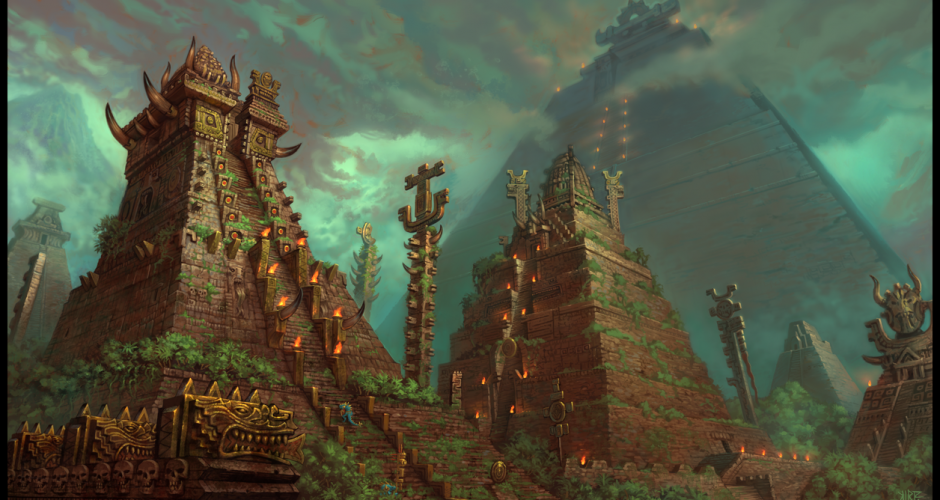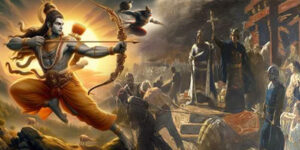In the western world, pagan has long been a term of disrepute, suggested someone who is uncultured, primitive, superstitious, or barbaric, extending at times to the worst forms of idolatry and perversion. Originally the term pagan referred to the uneducated farmers and country people in the Roman Empire, among whom the older pre-Christian religions survived the longest, suggesting that these religions were traditions of the crude and illiterate.
 Yet if we look at world history carefully, we see that that the pagan traditions have produced probably the greatest flowering of knowledge and culture throughout the world, and continue to do so to the present day. What has been called pagan has been at the forefront of civilization, education, and the pursuit of knowledge both spiritual and mundane. The ancient Greek and Roman pagans were more sophisticated in terms of art, philosophy, and culture than the Christians who converted them. India and China have very old and deep cultures that reflect the pagan traditions of Asia. Yet if we look even at native cultures, also often derided as pagan, we find much of depth and beauty in their cultural and art forms.
Yet if we look at world history carefully, we see that that the pagan traditions have produced probably the greatest flowering of knowledge and culture throughout the world, and continue to do so to the present day. What has been called pagan has been at the forefront of civilization, education, and the pursuit of knowledge both spiritual and mundane. The ancient Greek and Roman pagans were more sophisticated in terms of art, philosophy, and culture than the Christians who converted them. India and China have very old and deep cultures that reflect the pagan traditions of Asia. Yet if we look even at native cultures, also often derided as pagan, we find much of depth and beauty in their cultural and art forms.
If we look carefully, we see that most of the great cultural developments in humanity have their roots in traditions that have been called pagan, or have been denounced as pagan. This includes the realms of art, science, philosophy, mysticism, politics, and economics, from the ancient origins of civilization to the most recent scientific developments. Pagan ideas and practices are behind most of European culture, the greater portion of the cultures of Asia through India, China and Japan, as well as the many native cultures of the Americas, Africa, and Polynesia.
 Pagan traditions include older pre-Christian and pre-Islamic traditions, such as the Greek, Roman, Celtic and Germanic of Europe, and the Egyptian, Babylonian, and Persian of the Middle East.
Pagan traditions include older pre-Christian and pre-Islamic traditions, such as the Greek, Roman, Celtic and Germanic of Europe, and the Egyptian, Babylonian, and Persian of the Middle East.
There are also new and revived pagan traditions in New Age thought in the West, as well as atheists, agnostics, and pantheists, who often have affinities with pagan thought. Eastern Dharmic traditions, also called pagan, include the Hindu, Buddhist, Jain, and Sikh. Native Asian pagan traditions include the Taoist, Confucian, and Shinto. Native traditions of Africa, America, Asia, and Polynesia are diverse group with many connections to nature, the Earth, and the cosmic spirit.
Many people have been denounced as pagan or heathen, not because they were primitive or uneducated, but because the advanced culture, art, science, and philosophy they followed was regarded as threatening to belief oriented traditions and their simplistic patterns of salvation and damnation.
There is an underlying affinity, if not unity between European pagan, dharmic, and native traditions. Such groups share a respect for all nature as sacred, an honoring of the presence of spirits in nature, and a seeking of higher states of consciousness of unity with the living universe. They usually promote tolerance, free thinking, and, diversity, and recognize the existence of many paths to truth. They do not have any overriding agenda to convert or conquer the world, but regard culture and spirituality like a garden, requiring different plants in order to truly flourish.
If we add together the total numbers of these broader pagan groups today, they extend to more than two billion people globally, or greater than the total number of Christians in the world and more than one-third of all peoples. If we add to this the total number of people for whom pagan based ideas and practices have importance, it extends to most of the people on the planet.
Civilization, we should clearly note, began in the ancient pagan cultures of Egypt, Sumeria, Egypt, India, and China in the old world, and in Mexico and Peru in the new world. The original forms of art, religion, music, and science, as well as politics and economics have pagan roots. In regions like India and China these pagan traditions have continued to develop to the present day as the dominant cultures. In areas like Europe where pagan traditions lost power outwardly, they have remained in the background and have continued to make important contributions.
Western Christian culture contains much that was originally pagan. Most of what is admired in European culture – its philosophy, science, medicine, art, and literature – has pagan roots, and represents a continuation of Greco-Roman pagan traditions. Christian and Islamic theology, philosophy and mysticism is a development from older pagan thought of Greeks like Aristotle, Plato, and Plotinus. The Renaissance and Enlightenment in Europe were rooted in a revival of pagan thought and included new depictions of pagan deities. Even the Islamic Renaissance of the ninth century emphasized the teachings of older pagan Greek thinkers, as well as bringing in older Persian and Hindu pagan teachings.
In Latin America, much of pagan culture has continued in the background through the festivals, dances, and spiritual practices of the people. African culture and its music and dance that has influenced the world is similarly pagan.
Modern science specifically traces its roots to pagan traditions, particularly through the Greeks and Romans. Yet science was also well respected in ancient India and China, which had no church to denounce them.
Perhaps most notably, the democratic tradition in politics has its roots in ancient Greek and Roman pagan thought, not in autocratic forms of monotheism. Similar democratic movements existed in ancient India, particularly around the time of the Buddha.
This connection of pagan and democratic ideas can be observed in Washington DC, the American capital, which has our lady of Liberty at its top like a pagan Goddess, along with the Washington monument like a pagan obelisk. Pagan deities remain part of European poetry to the present day, just as pagan philosophies have formed both western theology and western practical philosophy.
The Catholic Church originally opposed democracy as a pagan practice, just as it did science and artistic freedom. Europe struggled for centuries to reduce the power of the church and allow for free-thinking, centered on a study of older Greek and Roman pagan texts. Yet we should remember that the Church was not just opposed to secular learning as pagan, it also denounced mysticism and occultism as pagan and ungodly, just as it is inclined to pronounced the practice of Yoga today.
 Of the pagan traditions in the world, the Hindu tradition, also called Sanatana Dharma or the eternal Dharma, is probably the oldest, largest and best preserved, and remains widely practiced by nearly a billion people in the world. The kind of temple worship that we see occurred in ancient Egypt, Babylonia, or Greece still can be found in India today. For those seeking to restore or revive pagan traditions, the Hindu tradition has much to offer, having maintained its connection with deities, nature spirits of all kinds. The ancient Greeks and Hindus shared many common cultural traits in terms of temple worship, painting, sculpture, dramas, philosophy, astrology, and medicine. This affinity extends to many other pagan groups in Europe and Asia.
Of the pagan traditions in the world, the Hindu tradition, also called Sanatana Dharma or the eternal Dharma, is probably the oldest, largest and best preserved, and remains widely practiced by nearly a billion people in the world. The kind of temple worship that we see occurred in ancient Egypt, Babylonia, or Greece still can be found in India today. For those seeking to restore or revive pagan traditions, the Hindu tradition has much to offer, having maintained its connection with deities, nature spirits of all kinds. The ancient Greeks and Hindus shared many common cultural traits in terms of temple worship, painting, sculpture, dramas, philosophy, astrology, and medicine. This affinity extends to many other pagan groups in Europe and Asia.
Today we are witnessing a return of pagan thought and a growing respect for it worldwide. Even the new ecological thinking has pagan origins and affinities. The free thinking side of pagan thought remains perhaps the most important civilizing force on the planet. Therefore, it is time to look at the term pagan with a sense of respect, or to invent a new more respectful term like “dharmic or nature traditions” for what has been pejoratively called pagan. Such pluralistic spiritual and scientific traditions are arising again throughout the world and likely to dominate the future of humanity as they have dominated the past. The pagans remain with all of us and represent among the most noble of all human strivings.



























4 Comments